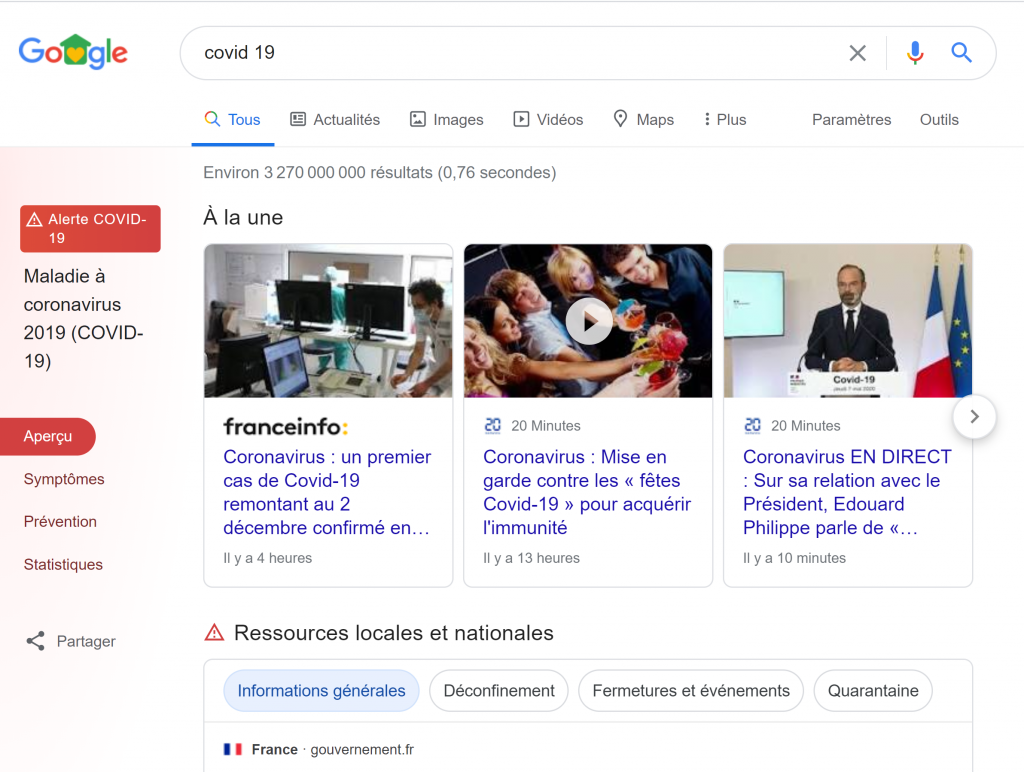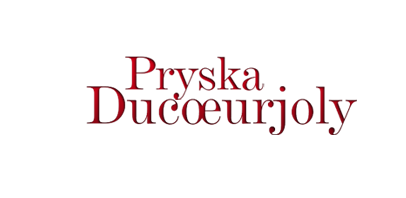This article was published in the Pure Santé network, of the Health Nature Innovation group.
VOIR AUSSI Freedom of expression and censorship on the internet : what citizens do not know (video for Nexus magazine) :
The hunt for fake news becomes political
On the government website, a platform called Désinfox which listed until 5 May 2020 newspaper articles deemed "safe and verified" have just been hastily removed ! What was she offering ? " More than ever, relying on or sharing unverified information can lead to errors and risky behavior. To protect yourself and others, it is necessary to refer to reliable and verified sources of information. »
This platform is part of the increasingly open information war between the "official" media (press card holder) and the alternative media or citizens that have emerged since the digital age.
A ministry of truth?
Thus, Arnaud Benedetti, editor-in-chief of the Political and Parliamentary Review, author of Le coup de com ’permanent (Cerf, 2018) declared to FigaroVox [1]:
"This government initiative reflects the great excitement of an executive power which, for want of censorship, transforms into information certifier. It goes without saying that it is not up to the State to carry out this work.. The biggest lies in history have often been, moreover, propagated by states. Since the start of the mandate, Emmanuel Macron wants to be the archangel of the fight against fake-news. He randomly and questionably legislated about it. (…) When the state pretends to tell us the truth, he only says "his" truth ... or his lies. In other words, this device is nothing more than an awkward attempt to return to a form of information ministry, even of an "office of the public spirit" such as the revolutionaries created it in 1792 ... "
Do we want to be vaccinated against ... critical thinking ?
These mainstream media (radio, papier, TV) can since 1 build on new law against manipulation of information, commonly called "fake news law" or "news law", adopted by Parliament on 20 November and promulgated on 22 December 2018 [2].
This law, widely criticized by many free speech advocates, completes an existing legislative arsenal, but more specifically addresses the extremely rapid spread of fake news on the Internet. It creates a duty of cooperation for platforms which must implement measures to combat the dissemination of false information "likely to disturb public order".

More and more traditional media now have a decoder or facts checker service. They are the ones who communicate to Facebook or other platforms the fruit of their thinking which then serves to "censor", more or less openly, some information. This is why internet users are today seeing some of their publications hidden by the "false information" cupboard., without being able to challenge.

The turn of the screw on freedom of expression is actually international. Many bloggers on YouTube have testified that their videos were deleted without any real remedy. The management of You Tube has just announced that any contribution outside the nails of the WHO would be considered video not grateful. Now the only loophole for citizen freedom of expression can only come from the emergence of other free hosting platforms…
Media judge and party
Obviously, the decoding services of the official media are both judge and jury. The information they describe as "fake" very often contradicts "their" version (and that of other mainstream media). Can we really trust them to objectively decrypt alternative information from the field ? These media are in a process of self-justification in the face of citizen sources and seem very little inclined to self-criticism.
I remind you that the treatment with hydroxychloroquine of Pr Raoult had been classified as "fake news" by Decoders of the World ... This decoding article had been published on the Désinfox platform of the ministry, before being removed from the hustle and bustle on social media. The fact is that Internet users virally relay videos from the IHU Mediterranean Infections YouTube channel, led by Pr Raoult, which no longer needs traditional media to explode audience ratings !
H1N1 flu : start of information control
This evolution towards more "controlled" information dates from the H1N1 case, a flu declared as a pandemic by WHO in 2009. This health crisis, who was not one, had resulted in the fiasco of purchasing unnecessary and potentially dangerous vaccines. For the record, the cost of managing this epidemic had cost some 2 billion euros to France ...
Government speech and that of the "official" media had generated many fears and anxieties among citizens, as is the case today. Or en 2010, a parliamentary commission of inquiry that we haven't really heard about, was responsible for studying the management and overvaluation of this flu episode. In its conclusions, the commission had finally cleared Minister Roselyne Bachelot and the public authorities "Who did their best based on the knowledge they had". But…
She was also concerned about the emerging phenomenon of social media protest : "The health authorities, with a message confused by multiple interventions on the appropriateness of the vaccination campaign, overwhelmed by a competing debate on the internet where they failed to present their counter arguments, then did they lose the “communication battle” » ? » Hard confession.
It front of "Crazy internet rumors, writes the rapporteur in his conclusions, the violent attacks of the anti-vaccine lobby or the spectacular announcements of pseudo-experts in search of media glory ”, this report recommended "Strengthen the multimedia watch center within the government information service and provide an appropriate response on the internet and on all social networks".
The media do the job
In the conclusions of the commission, there were of course many recommendations to better manage a pandemic : "After this event which did not cause damage on a scale as large as the one expected, today we have the opportunity to reflect on the improvements to be made to restore confidence in public health policies and to better manage future "crises".
We have apparently not made progress in determining and managing epidemics or pandemics properly. We also struggle to use drugs that already exist on the market, which are efficient and inexpensive… Finally, we have failed in the funding and management of the public hospital to improve care.
Côté fake news, en revanche, everyone understands how much this recommendation for better information control has caught the attention of public authorities ! Obviously, the ministry's Désinfox platform aimed above all at controlling information on sensitive subjects, starting with health policies and in particular vaccination.
Whether it's deleted or not, ultimately no matter, because any more or less alarmist information on the dangers of vaccination is systematically qualified as "fake news" by the media "partners". The mainstream landscape does the job of institutional communication and health experts who want containment “Vaccines for life”.
But can the government count on the information varnish to make up for its operational shortcomings in the management of this crisis ? The future will tell us soon if he won or lost this new communication battle, ten years after the H1N1 affair.
To your mice, citizens !
Priscilla Ducoeurjoly
[1] “By choosing press articles, the government is trying to recreate an information ministry ", le 1er mai 2020.
[2] More information on : https://fr.wikipedia.org/wiki/Loi_contre_la_manipulation_de_l'information
Related Articles
Keywords: censure, coronavirus, fake news
